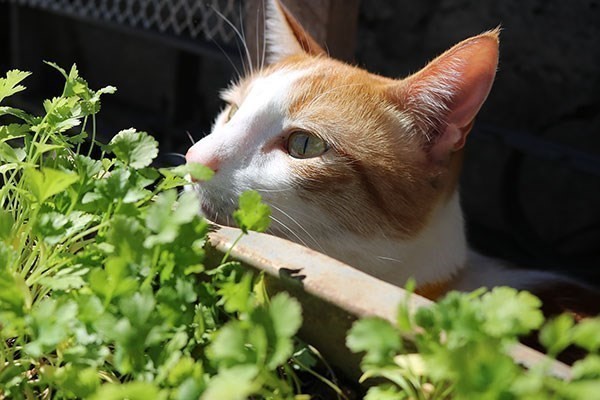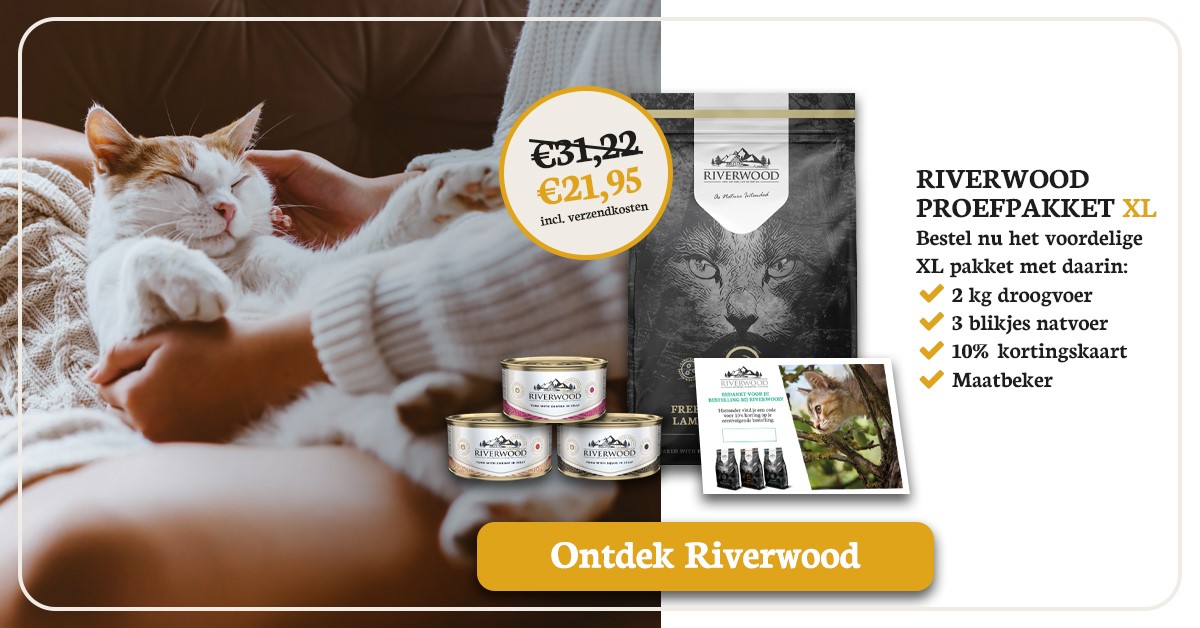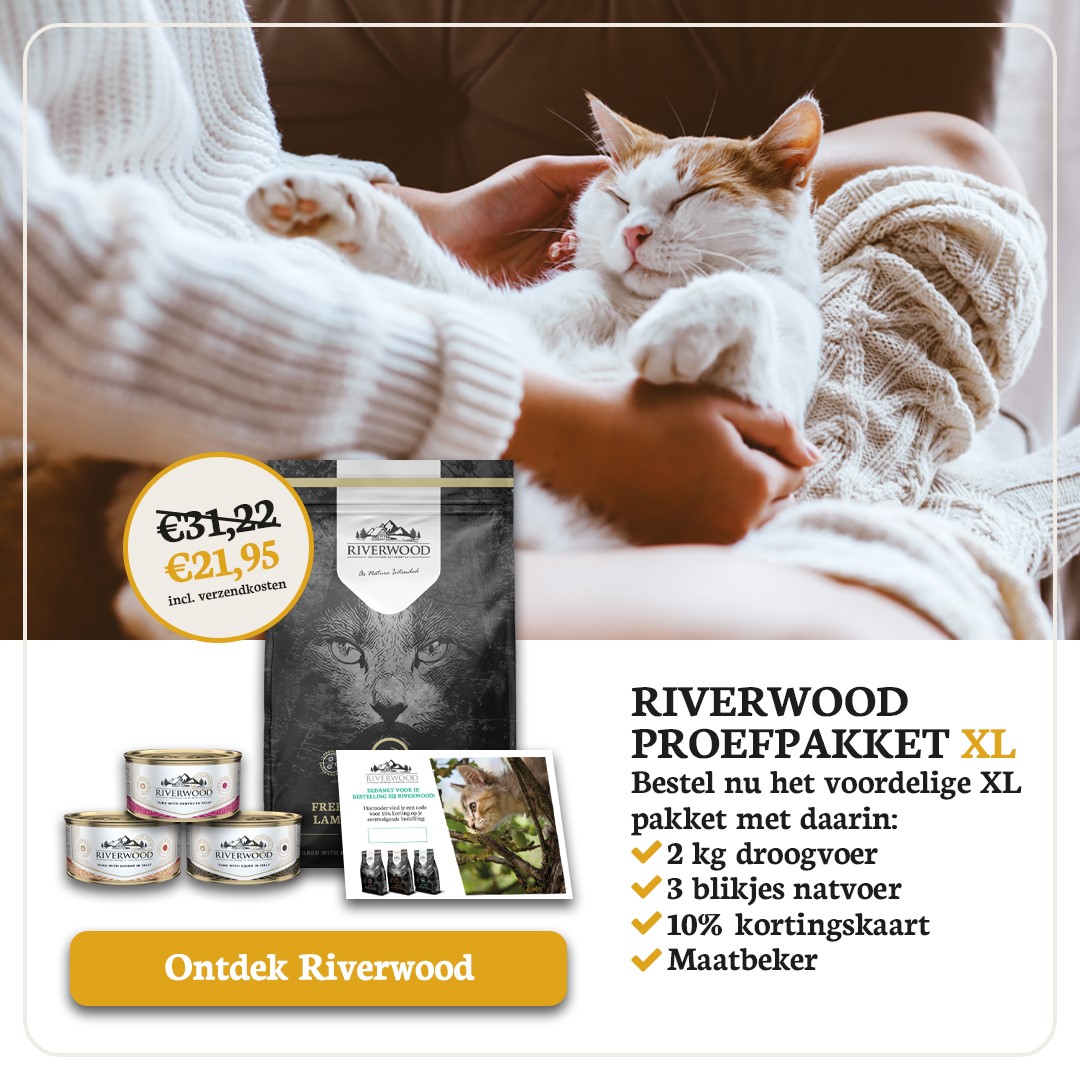Cats and poisonous houseplants. Watch carefully!
A beautiful and cozy houseplant, who doesn't have them in their home? It is so obvious to many people and it seems very harmless. Nevertheless, it is a matter of caution for cat owners! A number of houseplants are in fact toxic to cats. Even though cats are picky eaters, some cats will still sniff a houseplant and may accidentally ingest something. In this blog, we tell you which houseplants are toxic, which are safe and what to do if your cat is poisoned.

Which houseplants are toxic to cats?
Many houseplants are not suitable for a cat. No houseplant is there to eat, of course, but a few are actually poisonous. Herewith a list of poisonous plants for cats:
- Agave
- Allamande
- Alocasia
- Aloe vera
- Amaryllis
- Anemone
- Azalea
- Bitterleaf
- Caladium
- Calla
- Chrysanthemum
- Croton
- Cyclamen
- Dieffenbachia
- Ficus
- Hedera
- Hydrangea
- Holly
- Hyacinth
- Iris
- Chamberelder
- Chamber palm
- Opportunity tree
- Cone primrose
- Christmas rose
- Poinsettia
- Lathyrus
- Lily
- Lily of the valley
- Spoon plant
- Periwinkle
- Mistletoe
- Daffodil
- Oleander
- Orange tree
- Palm lily
- Philodendron
- Sansevieria
- Ornamental pepper
- Saint Joseph plant
- Snowdrop
- Finger plant
- Waxflower
- Silk plant
Note that these are the most common houseplants in people's homes. Thus, this list is not exhaustive.
Important sidenotes
During the Christmas season, many people have an attractive Christmas tree or poinsettia in their home. Your cat may not eat the needles by themselves, but the needles can end up in the food bowl unseen. These needles are toxic to your cat, so be especially careful during the December month.
Furthermore, we also warn you about the lily. A common flower in bouquets. This flower including pollen is very poisonous. If your cat passes by a lily, pollen can get into its fur. As a result, there is a chance that your cat will ingest pollen when it licks itself clean.
Which plants are not toxic to cats?
There are, of course, plants that are non-toxic to cats. This is a list of non-toxic plants for your cat:
- Aglanomei Maria
- Bamboo palm
- Banana plant
- Bromelia
- Calathea
- Grass Lily
- Staghorn
- Kentia palm
- Coconut palm
- Nest fern
- Orchid
- Pancake plant
- Pilea depressa
- Chrysalis Cashero
- Zebrina fern
- Zinc fern
Note: Some plants do not survive cats. Especially if it is too tempting to jump in! 😼
What happens if your cat has eaten from a poisonous plant?
When your cat has been poisoned by a plant, they may suffer from the following symptoms:
❌ Stomach and intestinal discomfort
❌ Vomiting
❌ Diarrhea
❌ Nausea
❌ Lack of appetite
❌ Swelling in the mouth
❌ Swelling in the throat
❌ Skin irritation
❌ Liver or kidney failure
What should you do if your cat is poisoned?
It is important to act quickly if you suspect your cat has eaten from a poisonous plant. Go to the vet as soon as possible and take the plant in question with you so that the vet has a clue as to what type of poison it is.
Additional tips for curious cats
Maybe you are lucky that your cat doesn't look back at your plants. If the opposite is true, try to distract your cat and buy safe plants.
Consider placing your plants out of reach of your cat, for example on plant stands or tables. There are also repellent sprays that you can spray on your plant. Surrounding your plant with something that feels unpleasant to your cat, similar to aluminum foil, can also be a good solution.
Fun toys, an automatic feeder or a wind organ can help keep your cat from getting bored while you are away. In fact, boredom can result in chewing on plants and we want to prevent that.
Eating plants is not good for cats' health. Did you know that certain fruits and vegetables are also not good for your four-legged friend? We previously wrote an article about this in which we show which types of fruits and vegetables are bad for your cat. Check out the article here!
Lots of cats already enjoy Riverwood every day. Would you also like your cat to enjoy our delicious kibble and are you curious which variety would suit your cat best? Then answer a few questions here and order an inexpensive sample pack right away.




